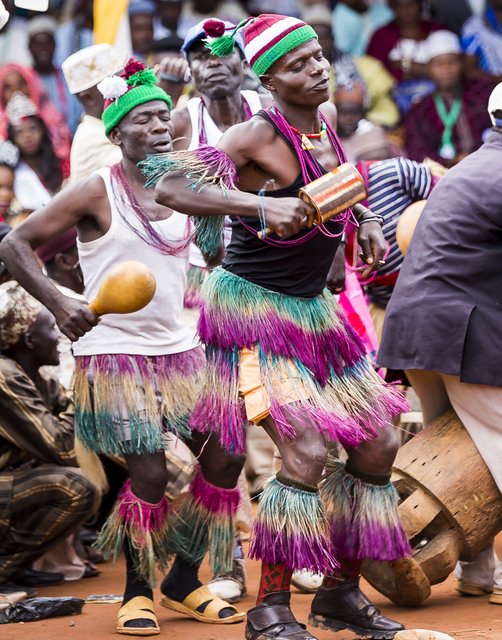Cultural Similarities in Nigeria

There are similarities in the cultural practices of the Nigeria people. The following are some of the similar cultural practices of the people of Nigeria.
- Political system: Each community in Nigeria has a traditional political system under a paramount chief with different titles. These include the obas, obis, ezes, emirs, and the obongs.
- Family system: Extended family is a common feature of all cultures in Nigeria.
- Respect for elders: According respect to elders is a feature of all communities and cultures in Nigeria. Irrespective of one’s social status, elders are respected in Nigeria and their words of advice are considered important.
- Marriage system: The system of marriage is similar in most of the communities in Nigeria. Virgin brides are highly honoured in Nigeria and her parents are praised and presented with gifts.
- Religion: Religion is the specific system of belief or worship; and it is a way of life based on how people relate with their God. There are three main types of religion in Nigeria; these are Christianity, Islam and Traditional religions. Nigerian people are religious; nearly every Nigerian belongs to one religious group or another. Before the advent of Christianity and Islam, each community believed in the existence of the Supreme-being and had a traditional way of relating with Him.
- Taboos: All ethnic groups in Nigeria have one form of taboo or another against something. A taboo against something means a belief or custom that does not allow people to do, use or talk about a particular thing, especially in public.
- Occupation: Farming and trading are common to all cultures. These form the basic occupation of the people before the arrival of colonial masters.
- Cultural relationship: All groups accept people at home, in the street, in the town as ‘brother’ or ‘sister’ or ‘father’, even if there is no blood relationship. Outside the state or country, whoever is from your state or country is regarded as ‘brother’ or ‘sister’ whenever you meet and discuss with other nationalities.
- Naming ceremony: All cultural groups, all religious practices allow new born babies to be named after a particular number of days of delivery as stipulated by the group. For examples, Yorubas do naming ceremony after eight days of delivery.
- Arts and crafts: All cultural groups in Nigeria have their distinct work of art and craft in form of carvings, sculpture, weaving, etc. for examples, the people of Kano were known for their leather work, the people of Benin city were known for their brass-casting, the people of Abeokuta were known for their tie and dye called adire,
- Mode of eating: Eating habit such as the use of one’s fingers to eat is common to all traditional communities in Nigeria.
- Emphasis on the dignity of labour: Nigerians place high value on dignity of labour, good neighbourliness and patriotism. No job is bad within the Nigerian culture. Stealing is abhorred and disrespected.
EVALUATION
- State five cultural similarities in Nigeria.
- Explain the stated cultural similarities.
- Write brief notes on any two of the following cultural similarities in Nigeria: (i) Religion (ii) Respect for elders (iii) Arts and crafts (iv) Marriage system.
Read our disclaimer.
AD: Take Free online baptism course: Preachi.com 